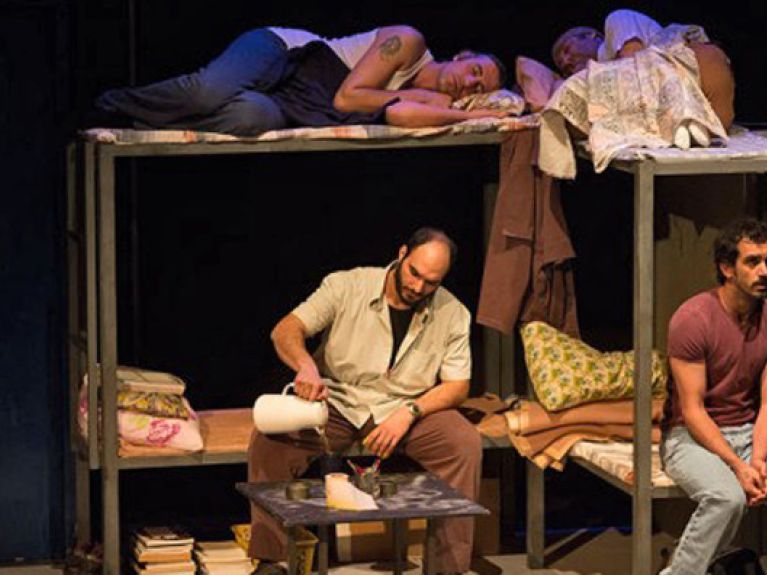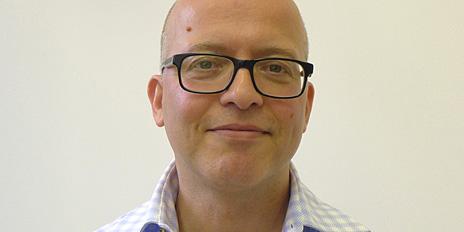“Islands of reason”
The Rosa Luxemburg-Foundation in Israel supports a lasting peace and fosters left-wing socio-economic values.

The premises of the Rosa Luxemburg Foundation, affiliated with the Left Party, are located in the Boulevard Rothschild, in the heart of Tel Aviv. It is the youngest of the six German party-affiliated foundations in Israel. Its offices were opened in 2008 with a symposium on “The Legacy of Rosa Luxemburg for the German and Israeli Left”. In addition to the study of its own history, the Foundation’s current work focuses on the analysis of the economic crisis and answering the question what is leftist and socialist today.
The Foundation makes no secret of its political stance. Its quadrilingual homepage – in English, German, Hebrew and Arabic – proclaims that it is “partisan through and through”. At the same time, the foundation also presents very different perspectives within a spectrum that includes left-wing, radical left, Zionist, post-Zionist and anti-Zionist positions. The Foundation thus aims to reflect the diversity of progressive voices in Israeli society.
It provides these voices not only with a forum but also with space when need be. For example, the Foundation makes rooms available free of charge to political activists and organizations that identify with its vision. Every two months a film evening takes place that focuses on the current socio-political situation in Germany and Europe or aspects of the historically special relationship between German and Israel. As part of this programme, a documentary film about Swiss psychologists and their engagement in the Gaza Strip was recently shown.
4 questions for Office Supervisor Tsafrir Cohen

Welche Schwerpunkte setzen Sie in der Stiftungsarbeit 2017 thematisch?
What are the key themes of the Foundation’s work in 2017?
We are concerned about
- the protection of left-wing islands of reason in the media and cultural and activist spheres in the face of shrinking democratic spaces and attacks against the Israeli left. Our focus is on projects that are specifically directed against the nationalistic and neo-liberal policies of the government and that conduct a decidedly leftist discourse which seeks to end the colonization of the occupied Palestinian territories as a basis for a lasting peace on the one hand, and promotes left-wing socio-economic values on the other. In the end, this is about fostering a humanistic discourse about history.
- A fairer distribution of land and planning rights.
- The promotion of emancipation processes in the Palestinian minority, a better representation of their interests in and equal cooperation with the majority society, and the strengthening of their presence in the Hebrew discourse and of the Arabic language in general.
- Networking between the Israeli actors and their counterparts abroad. An important example is our extensive German-language website, which provides information about Israel from the left-wing Israeli perspective.
How does your work differ from that of the other institutions?
In Israel, everyone is considered a leftist who opposes a radical, exclusively ethnically and religiously defined nationalism and stands for a fair two-state solution. Since all party-affiliated German foundations, like the corresponding political patties in Germany, are for a two-state solution and against exclusive nationalism, there are more and more overlappings amongst the various institutions. The Rosa Luxemburg Foundation strongly supports the Israeli left, that is to say, actors to the left of the Labour Party. This corresponds to an entire spectrum ranging from the radical left and Chadasch to the socialist wings of Meretz and the Labour Party. By “left”, we understand the clear advocacy of the end of colonization in the occupied Palestinian territories and of social justice in the sense of a democratic socialism.
Who would you like to reach with your work? And how well have you succeeded in this?
We see ourselves as a reinforcement player; we’re geared not so much to name recognition with a broad public but rather to Israeli actors. Through targeted appeals and project promotion, but also our own input, the Rosa Luxemburg Foundation has established itself as a main address for actors from the progressive camp in the strict sense and for many actors from the Palestinian minority in Israel. This applies both to the level of grass roots organization and to that of “high” policy. However, our partners on the ground, and so we too, lack a broad impact, especially within the Jewish population, and particularly among the working classes and in the Israeli peripheries.
What do you see as the greatest challenge for German-Israeli relations?
It consists, in my view, in the growing gap between a liberal democracy that no longer defines itself ethnically and guarantees at least a minimum of social rights on the one hand, and a society that increasingly defines itself in ethnic and religious terms, in which democratic freedoms are shrinking and whose fundamental socio-economic order is becoming more and more unjust. The latter two aspects are significantly promoted by the ongoing colonization of the occupied Palestinian territories.
© www.deutschland.de

